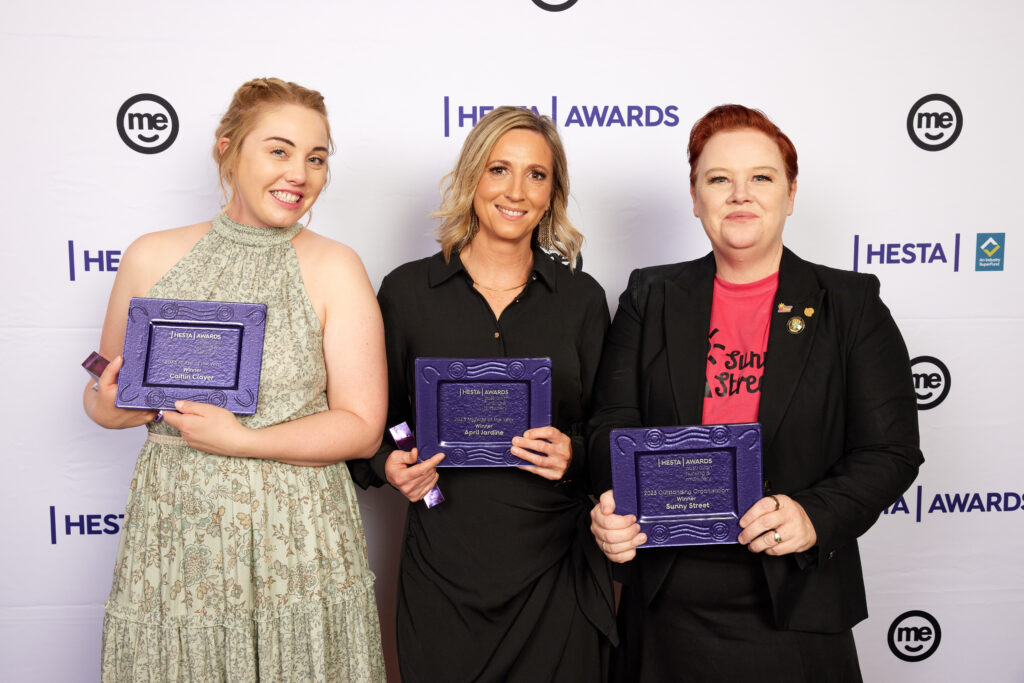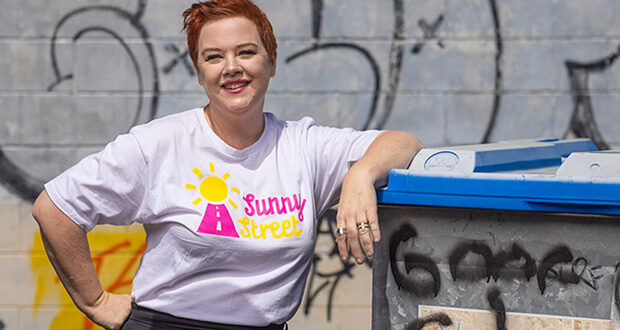A nurse pioneer has won HESTA's Organisation of the Year award for bringing healthcare to the street and helping vulnerable Australians.
Registered nurse, Sonia Martin, set up Sunny Street in 2018 to help people who'd been disengaged from healthcare and were 'sleeping rough and doing it tough.'
Over the last five years, Sonia's nurse-driven team has helped over 30,000 vulnerable Australians.
"My team and I demonstrate grit, determination, dedication, and a do this from a genuine love for others," Sonia said.
"One of the most remarkable aspects of our work is seeing the resilience of people who have so little."
Join Nursing Review's conversation with Sonia about how her work in public hospitals led her to establish Sunny Street.
What was your initial response to winning this year's HESTA award for best organisation?
I was shocked and overwhelmed with gratitude.
It's a massive honour for Sunny Street and our team members who work hard every day on the streets, helping people.
They demonstrate grit, determination, dedication, and a genuine love for others.
It's crucial for our community because anything that amplifies Sunny Street's voice also uplifts the voices of the people we care for.
I'm immensely grateful to HESTA and my team for the opportunity to have Sunny Street heard and seen in Australia.

What were the main drivers to set up Sunny Street?
In 2018, I worked in the public hospital sector.
I managed a team of about 30 nurses across five regional hospitals to address complex issues related to hospital discharges.
We were essentially problem solvers for the hospital system.
I closely collaborated with the emergency department and witnessed many individuals who didn't meet the emergency department's definition of an emergency.
Instead, they were dealing with loneliness, fatigue, chronic mental health issues, homelessness, and anxiety.
These individuals had nowhere to go and no one to go home to.
Often, they didn't even have a home.
They would come to the emergency department and spend hours there, sometimes even trying to sleep in the waiting room, just to get some respite from the challenges of their lives.
I watched this happen and did my best to assist alongside our incredible teams in the public health system.
But it was incredibly challenging within the limitations of the hospital walls.
There's this massive gap in access to equitable care for people experiencing homelessness and poverty.
I felt compelled to help these people.
It was a big decision considering my role as the breadwinner in my family. I had my own children and an established career in public health.
But I couldn't bear watching these people and not doing something about it.
I couldn't unsee it.
So, I thought, if I'm brave enough and bold enough, I could jump out and make a difference.
I resigned from my permanent position in the public health sector.
After leaving, I dedicated the first three months to speaking up and raising awareness about the issues of homelessness and poverty in Australia, particularly in the Sunshine Coast region where I had been working.
Teaming up with my business partner at the time, we established a nursing kit and began providing care from the trunk of a car.
We collaborated with local organisations, and I even took on a second job to make it all feasible.
That's how I began, starting with a concept and a car boot.
Who do you typically come across?
We help various marginalised communities, including individuals experiencing homelessness, sex workers, members of the LGBTQIA+ community, Indigenous peoples, and those transitioning back into society after prison.
We also help people obtain mental health care plans and prescriptions, as they often lack a regular GP and are unsure where to start.
So, we're a team of 30 nurses, GPs, dieticians, and psychologists and help in any way we can.
Most often, they need wound care.
Many of our patients resort to using makeshift bandages using toilet paper or cut-up sanitary pads to manage their wounds.
When they come to us, we educate them about proper wound care, provide prescriptions for antibiotics, and cover the cost.
Creating a psychologically safe space is crucial to our approach, so we go directly to where they are instead of asking them to come to us.
Is there a person or situation that made a significant impact on you?
I vividly remember one chap struggling to trust us due to past betrayals and trauma.
He had a leg wound that he refused to let us examine.
Instead, he would drop wet toilet paper at the back of the community centre where we worked on nights when our service wasn't available.
His experience with a GP who wouldn't treat him due to the off-putting nature of his wound only added to the indignity he faced.
He couldn't afford proper wound care products and would buy a $5 bag of rags from Bunnings, typically used for household purposes.
He would lay them on the driver's side floor, and the wound would drip into them. His dog would then clean the wound, and he'd attempt to wrap it with toilet paper.
It was a distressing situation; he was extremely ill and struggling to move.
He would hold onto the side of his van and move sideways, like a crab, across the vehicle.
He eventually allowed us to care for him through persistence and kindness, although it was in the advanced stages of his condition.
But it took several months of building trust, offering him food, and establishing a connection before he finally allowed me to see his leg.
The sight was shocking; the infection was severe, and I feared he might lose his leg.
He had been living like this for quite some time.
Despite refusing hospitalisation, we managed to get him on four sets of antibiotics.
We developed a remarkable relationship with him.
Unfortunately, he passed away due to the extensive infection he had endured.
It proved to us again that trust and the preservation of dignity in accessing healthcare services is so important.
People deserve to be treated with respect and not feel relegated to the back of a car park when seeking care.
Access to good wound care products and education on managing such conditions is crucial.
I'll never forget him. He was a darling man.
Despite his difficulties, he would show up in his little van, struggling to get out.
Volunteers from the community centre would bring him food, and I specifically requested to deliver his meals to establish a connection and provide assistance.
What do you find the most rewarding?
One of the most remarkable aspects of our work is witnessing the resilience displayed by individuals with so little.
Seeing the gratitude and humility expressed by the people we meet on the streets is truly humbling.
Building a company from a mere concept and a car boot to a statewide service in Queensland has been an enormous undertaking.
There are times when exhaustion sets in, and I question if I can continue after dedicating half a decade to this cause.
But all it takes is a visit to a street clinic and a conversation with someone facing severe hardships to remind me why I started.
There have been moments when I feared the company wouldn't survive, but there have also been instances when it thrived.
I'm constantly seeking innovative ideas to keep the company going and advocating for support, fully committed to my role as the leader of Sunny Street.
And we're always seeking corporate sponsorship.
Because we need help with what we do.
Do you have an idea for a story?Email [email protected]
 Nursing Review The latest in heathcare news for nurses
Nursing Review The latest in heathcare news for nurses

